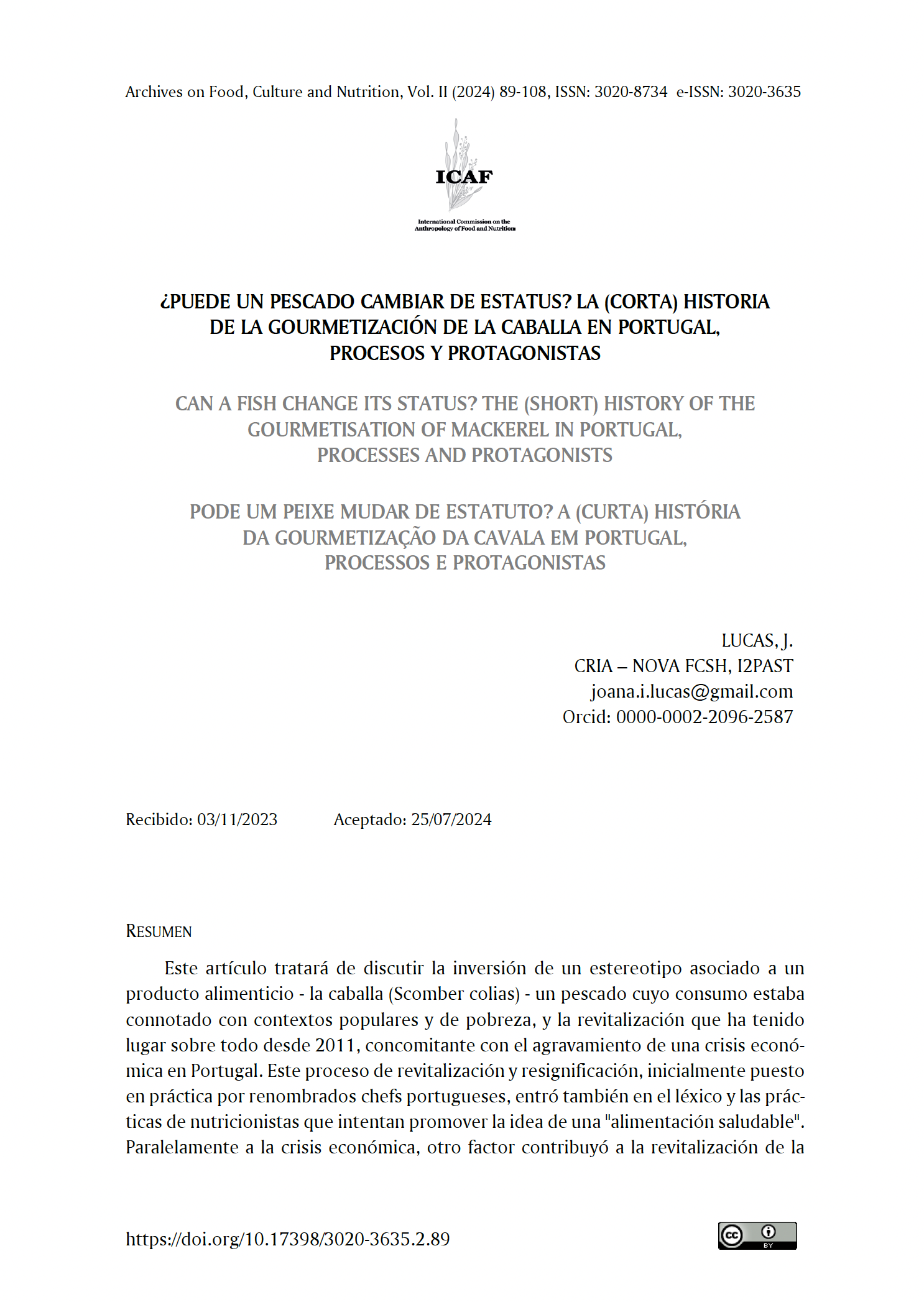Can a fish change its status?
History of mackerel gourmetisation in Portugal, processes and protagonists
DOI:
https://doi.org/10.17398/3020-3635.2.89Keywords:
Portugal, Mackerel, Economic crisis, chefs, gourmetisationAbstract
This article will try to discuss the inversion of a stereotype associated with a food product - mackerel (Scomber colias) - a fish whose consumption was connoted with popular and poverty contexts, and its revitalization that has taken place especially since 2011, concomitant with the worsening of the economic crisis in Portugal. This process of revitalization and resignification, initially put into practice by renowned Portuguese chefs, also entered the lexicon and practices of nutritionists who try to promote the idea of "healthy eating". Parallel to the economic crisis, another factor contributed to the revitalization of mackerel in Portugal: the imposition of fishing quotas on sardines, a fish recognized as a symbol of national food practices, associated with summer and its festivities. This brief analysis shows us how the process of gourmetisation of mackerel took place in a very specific context - an economic crisis in Portugal - a process that, as we will try to demonstrate, did not last over time.
Downloads

Downloads
Published
Issue
Section
License
Journal editors must be attentive to intellectual property issues and work together with their editor to manage potential infringements of intellectual property laws and conventions. It is important to note that the intellectual property laws of the local jurisdiction are sovereign.
All content published in Archives in Food, Culture and Nutrition (AFOCUN) is under a Creative Commons Attribution 4.0 International License (CC BY 4.0) for open access. This license allows others to distribute, remix, adapt, and build upon the work, even for commercial purposes, as long as appropriate credit is given to the original author. Authors retain copyright and grant the journal the right of first publication, registering the work under the corresponding attribution license. This allows third parties to use the published content as long as the authorship of the work and the original publication in this journal are acknowledged.
For more information about the license terms, see the official link: Creative Commons Attribution 4.0 International License.
Archives in Food, Culture and Nutrition respects the intellectual and proprietary rights (copyright) of published works and allows authors to freely use their own published works, always within the limits of applicable law








